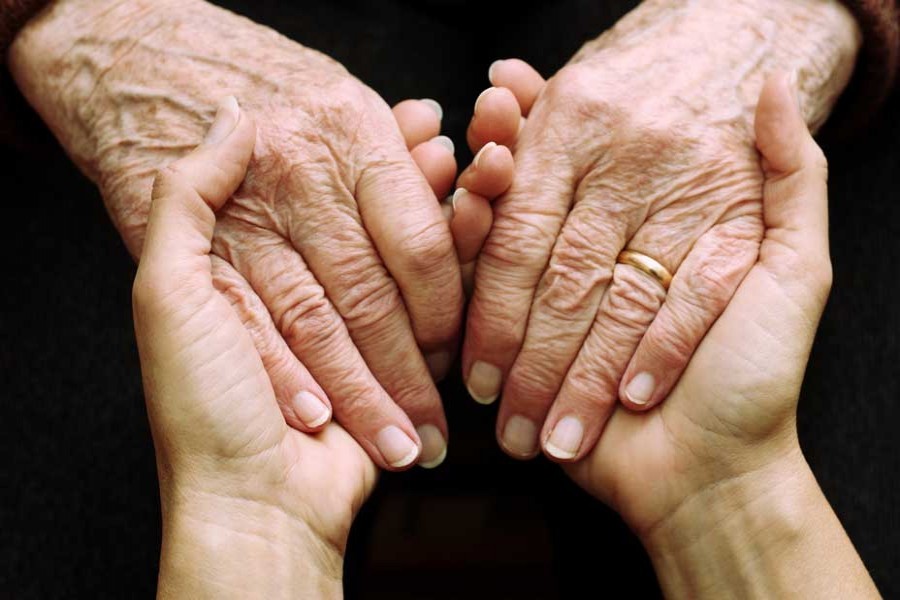
Published :
Updated :

At a time when the world is yet to recover from the worst pandemic of a highly communicable disease humankind has ever experienced, it is indeed challenging to shift the focus on the non-communicable diseases the elderly people suffer from. But a webinar titled "Linking Youth to the Wise for Digital Equity and Care" hosted by the ICDDR,B in collaboration with the Global Health Network Asia has exactly done this while observing the International Day of Older Persons 2021. Scheduled for October 1 each year, the day could not have chosen a more appropriate theme but the study undertaken to know about the health conditions of the elderly in Bangladesh should be considered an accomplishment of a highly important job. During the early days of Covid-19 attack, the elderly ---60 years old and above were the most vulnerable to the disease. They still are but the disease hardly discriminated against people of other age groups during its peak period of rampage.
In fact, the answer to why the elderly are more vulnerable to a disease like Covid-19 lies, albeit indirectly, in the findings of the study. Findings such as 80 per cent of the older people suffer from at least one chronic disease or 50 per cent from at least two or more diseases provide an answer to the question. The chronic diseases mentioned are hypertension, diabetes, depression and dementia. Heart and kidney diseases have not been mentioned but there is no doubt many of them have these diseases as well. Even without the more debilitating ailments of the latter category, the diseases mentioned are enough to leave a human body particularly vulnerable to Covid-19 that attacks the lungs. One particular message in the WHO-recommended list repeatedly put across was 'take particular care of the elderly in family' stood out because it struck the right chord.
True, people's longevity has increased quite appreciably thanks to the improved medical science and care. But it must be admitted that in this country access to advanced healthcare is illusive for the majority of the people let alone the elderly who somehow do not receive the attention and care they need irrespective of social classes they belong to. This is confirmed by the findings of the study mentioned above. Of the total number of elderly participants (2,795) in the study, 35 per cent visited local drug stores, 36 per cent and 17 per cent sought medical intervention from private and government health facilities respectively in the last six months. Those who visited drug stores appear to have received medication on the advice of pharmacists. This speaks volumes for the state of healthcare for older people.
What studies on the elderly hardly reveal is the fundamental cause behind the proliferation of diseases in the advanced age. The lifestyle and food intake largely determine, unless there are genetic complications, how people in their old age will stay fit or struggle with a host of physical ailments. Disciplined life is the key to maintaining sound health. This includes the choice of foods and eating habit. One problem often remains out of control, though, is the adulteration of foods and use of antibiotic in raising livestock and fish as well as chemical fertiliser and insecticide for growing crops, vegetables and fruits. The quality of life can greatly improve if the nation addresses these problems and start a movement for a simple fitness regime to follow aimed at staying fit.


 For all latest news, follow The Financial Express Google News channel.
For all latest news, follow The Financial Express Google News channel.